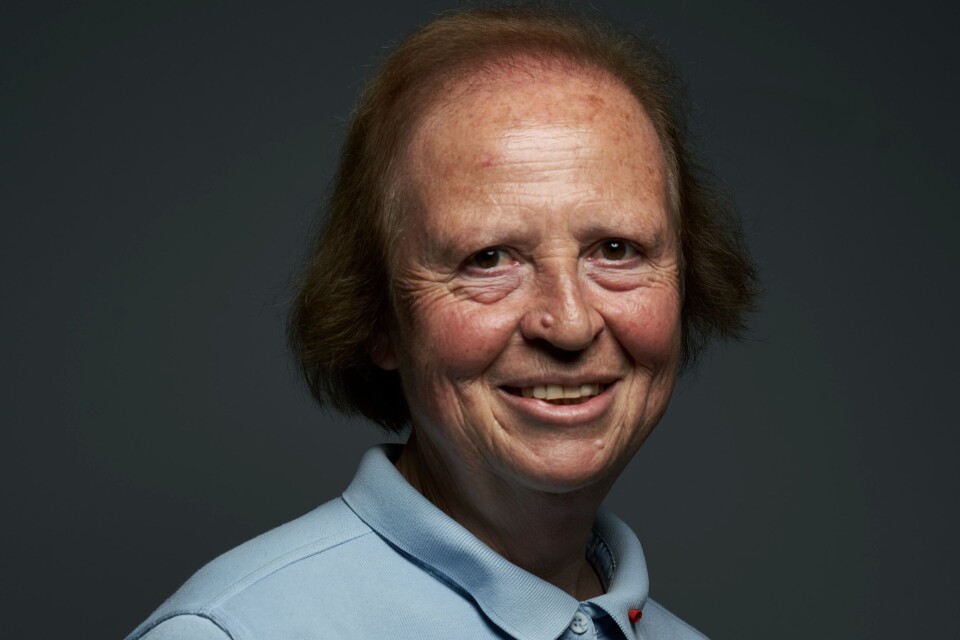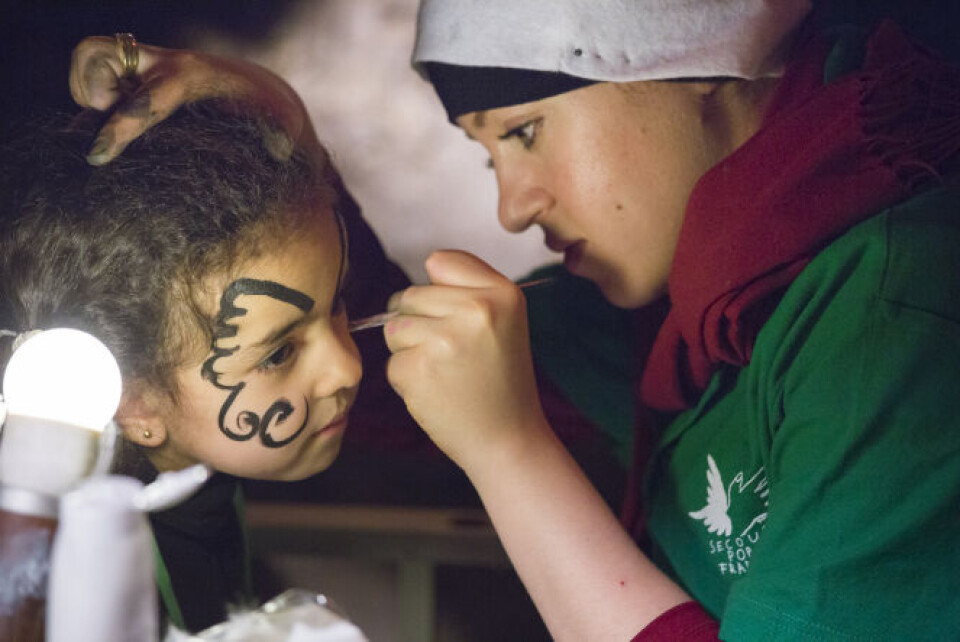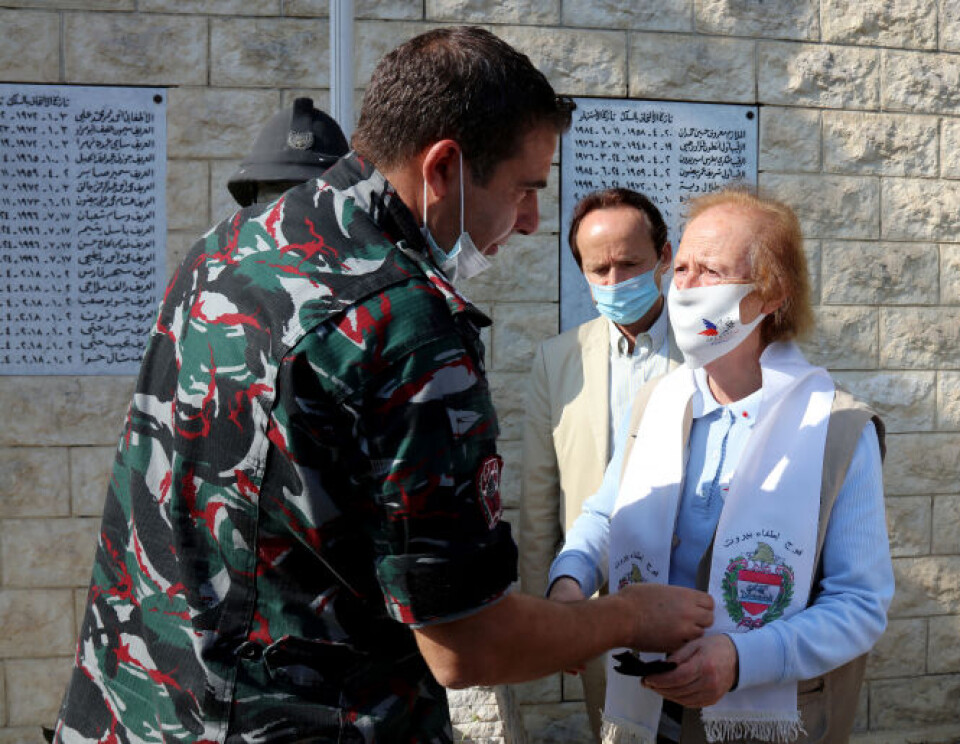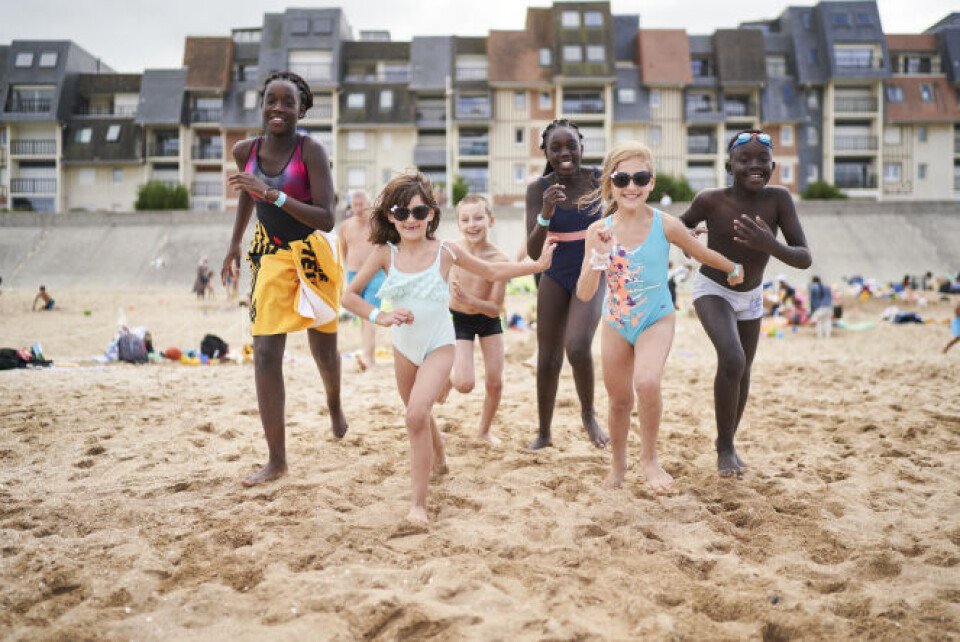-
France must do more to protect citizens detained in Iran, says former hostage
French-Irish citizen Bernard Phelan tells Théophile Larcher how 221 days in an Iranian prison have changed him irrevocably
-
Shop donations: Pays de la Loire and Corsica are France’s most generous regions
Almost €15 million was raised in 2025 via ‘round up’ donations at checkouts
-
Aude Biannic: trailblazing French cyclist and mother in the 2025 Tour de France Femmes
She made history as the first French cyclist to compete as a mother
Managing one of France’s biggest charities ‘makes life worth living’
Henriette Steinberg has devoted her life to the Secours Populaire and is now its secretary general. She also manages to find time to run a bookshop

Henriette Steinberg has been helping others for the past 60 years. Her parents, Jewish immigrants who escaped the Nazis, taught her the importance of reaching out to others in difficulty. She was ten years old when she started going out with her mother to collect money for the secular charity, Secours Populaire. She has been a volunteer with them ever since, and was made Secretary General in 2019.
What does the Secours Populaire charity set out to do?
It is a charity based on solidarity which began in 1938. It was supposed to be dissolved during the Pétain regime during WW2 but went underground, and reappeared officially after the war. Its aims have always been the same: to bring solidarity in France, in Europe and in the world to children, women and men who are victims of destitution, poverty and persecution, due to their beliefs or war.
We do not ask why a person needs help. We start from the situation they are in and see what we can do. We have 1,300 sites throughout France, and we are decentralised which means that the directors of the structures in the different departments are each responsible for the activities they undertake, and do not have to ask for permission from the national headquarters.
You say Secours Populaire is an association de solidarité.What do you mean by that?
It means we consider that the people we support are exactly equal to us. Each of us may, during our lives, be confronted with a situation which we cannot overcome alone. That can mean children, the elderly, or anybody in any kind of difficulty.
In Secours Populaire we like to say that those who give also receive, because they are happy to know they have helped someone, who may in turn be able to help someone else in the future. It creates a human chain between people which functions all over the planet.
We work with partners in 75 countries from all the continents. Our work starts with the children, because we know if they suffer, the whole family suffers. It is not just material support, it is also cultural, educational, in sport and leisure; everything which allows a young person to live the life of a child.
You have a series of different annual campaigns from January through to December. Can you tell me about the Green Father Christmases?
It is important that our volunteers who act as Pères Noëls Verts do not give children presents directly. Instead, they help the “real” Father Christmas through collections of donations of presents so that he will be present in every home. This means that children who are living in difficult conditions will have Christmas presents, just like their school friends, and will not feel different.

Pères Noëls Verts help Father Christmas through collections of donations of presents so that he will be present in every home. Pic: Pascal Montary
Another of your major annual campaigns raises money so that children can go on holiday. Is that another way of giving them a normal experience they can share at school?
Towards the end of the summer holidays, after August 15th, we organise a day for those who have not had a holiday that year, la journée des oubliés des vacances. We make sure there will be at least one day of activities, which might either be in a leisure centre, or a day out to the beach, or to discover a site their parents would not be able to take them to. Then when a teacher asks the class to describe their summer holidays, they too have something to talk about. They have played with other children, maybe seen unusual animals, taken part in a sport or taken a book home, because at home there may not be books.
We also help children to go on holiday, either to a summer camp, or on a family holiday, whenever the parents cannot manage to do this alone.
What help do you give to adults?
Our priority is children, because they are the most vulnerable, and the ones who will form the society of the future. But of course we help adults whether or not they have children. We try to help anyone who cannot solve their problems alone, while respecting their dignity and by showing them they too can help others. This gives them strength to start seeing their situation with more optimism.
You started working with Secours Populaire very young. How did that come about?
I started collecting donations with my mother and then as I grew older, I took part alone. I have always believed in the charity’s philosophy. It is strictly independent and not linked to political parties, to trade unions or to any other organisation, and we act with the money we have gone out and collected ourselves. This means that everyone knows that the money they give will go towards humane objectives, and will help to improve the situation of the most vulnerable.
What has been the impact of Covid-19 on Secours Populaire?
With Covid-19, we found ourselves on the frontline helping people who had never imagined they would be in a situation where they would not have enough money for food. Unlike other organisations, we never went into confinement, but remained present everywhere, so that no person in difficulty would find themselves in front of a closed door.

Henriette Steinberg in Lebanon, meeting their firemen. Pic: Secours Populaire
Have you noticed over your years with Secours Populaire that the nature of poverty has changed?
It is different. There are problems now that did not exist before. In the past many social activities were free, and did not discriminate between the rich and the poor. Primary schools used to supply paper, pencils, pens and books to all pupils. That no longer happens. It means families with very low incomes are immediately in an unfair situation. Their children do not have the same things as the others. In the same way entry for children into swimming pools used to be free, so they could all learn to swim. Access to the sports stadium was free. All these have become progressively commercialised. In the past, those who could not afford to pay benefitted from the same services as the others, but now they have to go to associations to help them to do so. In the same way, for example there have been changes in access to accommodation. There used to be ceilings on rents which meant housing was affordable, and then, when prices rose, the poorest were pushed out of the city centres. We have witnessed these changes over the years at Secours Populaire. In the sixties, elderly people needed help, then things improved, but now there are too many, who are once again living in appalling conditions. There does not seem to have been any progress.
Do you think that because computers have now become necessary in many areas of life, people have to be richer than before to escape poverty?
That is the reason Secours Populaire collects money to provide families with digital equipment, because Covid-19 has shown us that a lack of phones and computers leads to discrimination. In a family where there is just one smartphone,
it is often the ten or twelve year old who knows how to use it, and as so many public services are increasingly only accessible online, it is often the child who has to manage the family budget and administrative tasks. It is of great concern to us that all public services are increasingly only accessible online, as it means hundreds of thousands of people will be cut off from these services.
Read more: How to give more money to help Ukraine (use France’s tax benefits)
Do you think poverty is more complicated than it used to be?
It is more diffuse. Life was difficult before, but when somebody had a job, even if it was low paid, they would expect their wage to gradually increase. That is no longer the case. Salaries hover around the minimum wage and people can’t get away from that. When they are retired, their income is even lower than the minimum wage. We see that in both cities and in the countryside. And we ask people to donate so that we can help those in difficulty to live better.
Do people give readily to Secours Populaire?
Yes. In our country there is great generosity. And with Covid-19, it was even stronger. We wondered how we would cope. But people were generous.
In Britain we feel we have a very strong charity culture. Is it also the case in France?
The culture is different but in France there is a strong tradition of charitable works. In our experience the public respond to us favourably and no-one questions what we are doing and that people need our help. They are happy to see their money going towards something which works. They see the happiness of the children when they are on holiday, or when they go into a classroom like the others, proud to be wearing new gym shoes and a new coat. It means they do not stand out as poor children.

'Our priority is children, because they are the most vulnerable'. Pic: Christophe de Silva
Does that mean there is a real sense of joy in working as a volunteer with Secours Populaire?
That is definitely the case. Even when you have spent a great deal of time organising a trip to take 1,000 children on a day out, it has lasted ten hours and all you want to do when you get home is sleep, the volunteers are happy that they have brought happiness to others. Voluntary work creates happiness.
In a world of increasing poverty, where associations have more, not less work, are you pessimistic about the future?
Secours Populaire is a combative and optimistic organisation, because what we do works. We are humans who help other humans in France and in the world.
It is the Presidential elections this year. Do you have a message for the candidates?
Not at all. We do not intervene. But we do say that today there are too many people living in situations which should not exist in a rich country like France.
We observe that further education and training is not working and that the young are in distress, which is not good, as they are the ones who will build the future. So we think it is important to help the young to be interested and optimistic about their lives and have hope for the future. Too many of them leave school and don’t know what to do and feel rejected from everything and we must help them to find a way forward.
We are in contact with agricultural training schemes to take in more young people, as there are many openings in this domain. We will then continue to do the same thing, employment sector by employment sector.
Is being the Secretary General of Secours Populaire a full-time occupation?
I am not sure you can call it full time and if that really means anything, but it is one which uses a great deal of energy. However, it does not prevent me from continuing my professional life managing a book shop. Days are 24 hours long and they can all be used.
And what rewards does it bring you?
I do not think that the word reward is appropriate as that means you receive something and you must say thank you. That is not what I am into. For me, doing what I do for Secours Populaire is what makes life worth living. It is not a question of what I get out of it, it makes me want to live. To fight, to act, and to make things better.
Perhaps we should all do more to try to make things better?
I don’t know about more, but perhaps we should all try to do a bit. To start, anyway. After that it comes naturally and easily.
Related stories:
In France you are more responsible for yourself, says UK adventurer
We can host displaced Ukrainians at our French home, what do we do?
























